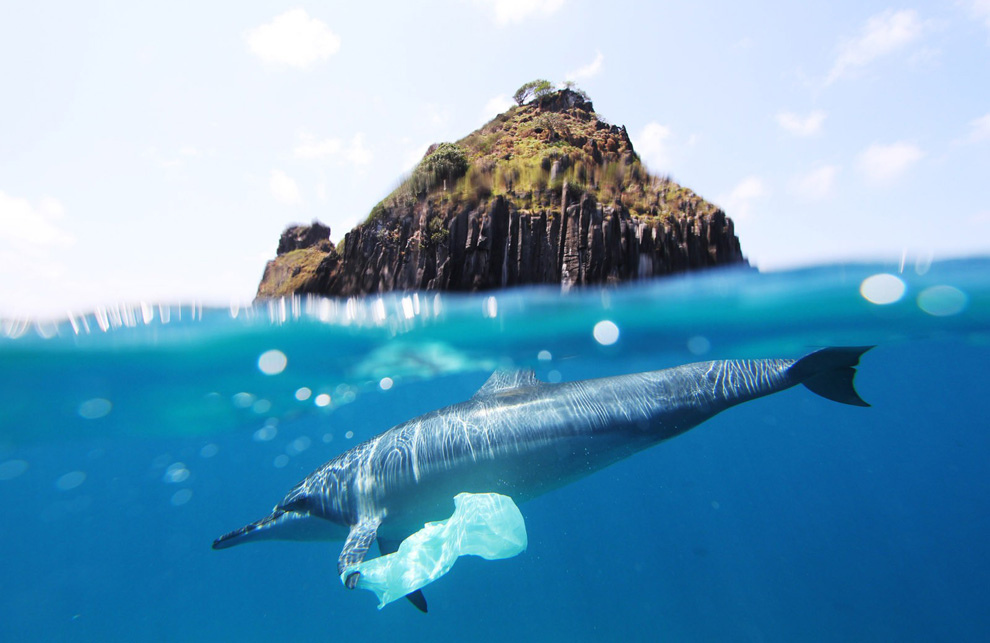Challenge to meet new EU plastic packaging recycling targets, says EPA expert

January 18th, 2018
Ireland will face challenges to meet new EU recycling targets for plastic packaging, a waste prevention expert has said.
Speaking before an Oireachtas Environment Committee hearing on the Green Party’s Waste Reduction Bill yesterday, the EPA’s Dr Tom Ryan warned that more progress is needed to protect our environment from plastic pollution.
Plastics made up 29 per cent of the 980,000 tonnes of packaging waste produced in Ireland in 2015 of which 34 per cent was recycled, exceeding the current EU target of 22.5 per cent.
While praising this progress, Dr Ryan told the Committee that the 55 per cent target proposed under the EU’s Circular Economy Package will “likely prove far more challenging” to meet by the proposed 2025 deadline.
“While Ireland has made progress in improving recycling and recovery levels, further progress is needed to protect the environment, meet incoming EU regulations and facilitate the move to a circular economy in Ireland,” said Dr Ryan, who works in the EPA’s Office of Environmental Sustainability.
Within Europe, Ireland is currently the top producer of plastic waste, producing 61kg of plastic waste per person each year. Dr Ryan said that any efforts to improve our waste management system must take our heavy reliance on export markets into account, and look to build up our recycling capacity here in Ireland.
The issue is set to be further complication by the recent decision to ban the importation of solid waste including plastic by China, where the vast majority of Ireland’s plastic waste currently ends up.
“Any efforts to increase the management of these waste streams should include proactive planning for adequate future treatment capacity in the State which is an important step in a move to circular economy and will support extracting more value from our waste here in Ireland,” Dr Ryan said.

Plastic Bottles Photo: Daniel Orth
European Recycling Strategy
The EU announced this week that it plans to make all plastic packaging on the European market recyclable by 2030 in a move toward a truly circular economy in the bloc. The proposal was mooted together with a range of other measures in Europe’s first-ever plastics strategy.
The European Commission will present legal proposals later this year to limit the use of single-use plastics and restrict the use of microplastics in the likes of soaps and cosmetic products.
According to the Commission, Europeans generate 25 million tonnes of plastic waste every year, less than 30 per cent of which is collected for recycling.
The strategy will also put new rules on packaging to improve the recyclability of plastics used in the European market and increase the demand for recycled plastic.
The strategy document indicates that this will save around 100 euros per tonne collected, and deliver added value for a “more competitive, resilient plastics industry”.
An additional €100 million will be made available to finance the development of smarter and more recyclable plastics materials across the EU.
Delphine Lévi Alvarès, the coordinator of the European NGO alliance group, Rethink Plastic, welcomed the Commission’s “willingness” to the tackle plastic pollution, calling on it to take swift action.
“It is now essential to bring forward ambitious legislation to drastically reduce the consumption of both single-use plastic items and packaging within this Commission’s term,” she added.
The new strategy recognises the need to rethink the way we produce plastic and deal with the waste we generate, said Meadhbh Bolger, a resource justice campaigner at Friends of the Earth Europe. She warned, however, that Europe can no longer keep exporting its plastic waste and “false management solutions” to the Global South.
“The Commission now needs to show it’s serious about tackling these injustices by making sure we reduce the quantity of plastics produced in the first place – anything else will be a failure.”

dolphin plastic bag at fernando de noronha Photo: Jedimentat44
Marine Litter
The EU strategy will also see the introduction of new Directive calling on port facilities to tackle sea-based marine litter, including measures to ensure that waste generated on ships is not left at sea but returned to land and managed there. The Directive will now go to the European Parliament and Council for adoption.
There are currently more than five trillion pieces of plastic floating in our oceans, weighing a whopping 250,000 tons – the same weight as almost 25,000 Dublin buses. In a 2016 survey, Coastwatch Ireland found that 80 per cent of surveyed coastal sites contained litter, with plastic bottles the main culprit.
Coastwatch Coordinator Karin Dubsky said: “We have already seen increased mortality in many species due to ingestion and entanglement, toxic and reproductive impact along food chains and we now routinely find plastic in the seafood on our own plates.
“The amount of marine litter in our oceans is predicted to increase year-on-year. Within serious action from both our Taoiseach and other world leaders, there will be frightening consequences for our marine environment.”
[x_author title=”About the Author”]







